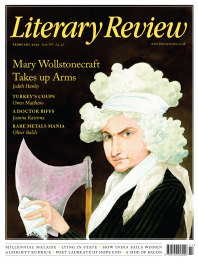Seán Williams
Land of Milk & Money
Once, fossil fuels were regarded as the primary evil threatening our planet’s future. Recently, however, the humble cow has come to take its place alongside them. Methane from bovine behinds is now recognised as a major contributor to climate change.
Cows are iconic of the countryside, especially in countries, like the Netherlands, where they have an outsized economic role. The well-known black-and-white dairy breed, the Friesian, was originally Dutch and the cow has long been celebrated in Dutch culture. Last year, a new museum glorifying Gouda cheese opened in the town in South Holland from which it takes its name. It was also the four-hundredth anniversary of the birth of the Dutch painter Aelbert Cuyp, famous for his pastoral scenes with cows. Cuyp’s pictures are realistic in a double sense: the cows are convincing and the paintings also capture a period of agricultural modernisation in the Netherlands. The Dutch Golden Age was an era not only of great painting but also of economic prosperity. The Dutch imported cheap grain from the Baltic as livestock feed and used their lowland pastures to fatten cattle and produce dairy products, such as cheese, which were exported abroad. They invested their substantial profits in land drainage and waterways. Simon Schama says that Cuyp’s cow paintings are a bovine

Sign Up to our newsletter
Receive free articles, highlights from the archive, news, details of prizes, and much more.@Lit_Review
Follow Literary Review on Twitter
Twitter Feed
It wasn’t until 1825 that Pepys’s diary became available for the first time. How it was eventually decrypted and published is a story of subterfuge and duplicity.
Kate Loveman tells the tale.
Kate Loveman - Publishing Pepys
Kate Loveman: Publishing Pepys
literaryreview.co.uk
Arthur Christopher Benson was a pillar of the Edwardian establishment. He was supremely well connected. As his newly published diaries reveal, he was also riotously indiscreet.
Piers Brendon compares Benson’s journals to others from the 20th century.
Piers Brendon - Land of Dopes & Tories
Piers Brendon: Land of Dopes & Tories - The Benson Diaries: Selections from the Diary of Arthur Christopher Benson by Eamon Duffy & Ronald Hyam (edd)
literaryreview.co.uk
Of the siblings Gwen and Augustus John, it is Augustus who has commanded most attention from collectors and connoisseurs.
Was he really the finer artist, asks Tanya Harrod, or is it time Gwen emerged from her brother’s shadow?
Tanya Harrod - Cut from the Same Canvas
Tanya Harrod: Cut from the Same Canvas - Artists, Siblings, Visionaries: The Lives and Loves of Gwen and Augustus John by Judith Mackrell
literaryreview.co.uk